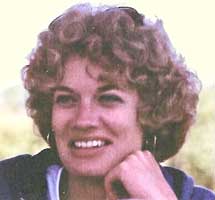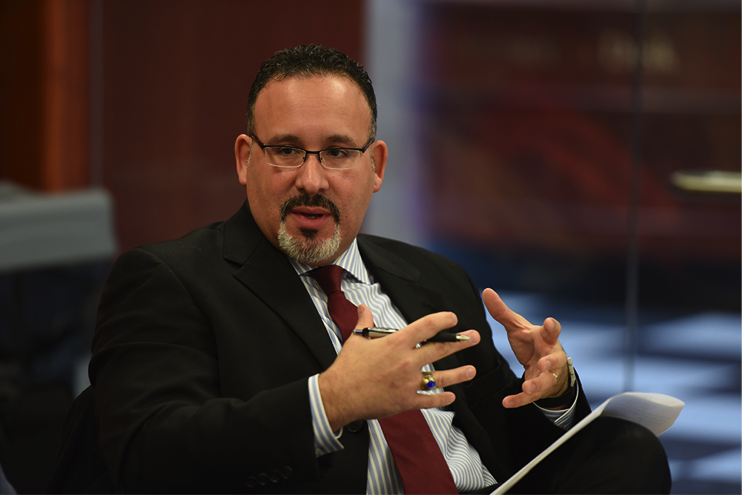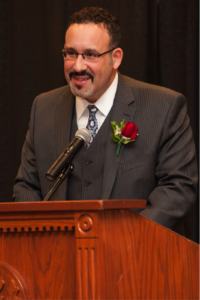Editor’s note: Dr. Violet Jiménez Sims, whom we honored in 2008, was the keynote speaker at the reception at which Theodore Martinez was introduced as the 2018 Alma Exley Scholar. Over the past 10 years, Dr. Sims has taught in urban and suburban schools, has been an activist on behalf of culturally and linguistically diverse students, has been elected to the New Britain Board of Education, has become an administrator, and has earned her doctorate. At the same time, she and her husband, D’Andre, have been raising two daughters who are now 12 and 14. Following are excerpts from her remarks.
Children of color do not necessarily need teachers of color in order to learn. They need caring adults who know their subject matter well, who deliver student-centered instruction, and whose number one priority is genuinely every child in their classroom. However, if those caring adults are only represented by white people — mostly white women — that is a huge problem. Diversity benefits all children and their impressionable minds.

Ethnic, racial, and linguistic diversity impacts perceptions of who is and who can be successful. A diverse teacher force helps engage students and produces positive outcomes from grades, to graduation rates, to college attendance. But when the ratio of teachers of color and students of color is highly disproportionate, we risk low cultural capital leading high cultural diversity, and we reinforce and validate white, middle class values as dominant- systematically reflecting and producing inequities based on race, culture, and language.
The damage is deep, often subconscious, and influences all aspects of our lives. Just how skewed is the teacher-student diversity ratio? The U.S. Department of Education noted in a 2016 report that about 51 percent of public school students were white while 82 percent of teachers and 80 percent of principals were white.
So what can WE do to remedy this situation? While many factors influence diverse teacher recruitment and retention, simply put, the biggest barrier to diversity is systemic racism. Even with numerous national efforts to diversify the teaching profession — grants, programs, campaigns, etc. — we lose teachers of color at every point along the education pipeline.
Picture an inverted triangle: of those who enroll in post-secondary education, fewer enroll in education programs, even fewer than that complete their post-secondary education, and even when they enter the workforce, many teachers of color leave the profession in the first few years. That is especially likely for male teachers of color. The Center for American Progress noted in 2017 that teacher diversity numbers nationally have actually gotten worse since 2012.
However, we have to continue our efforts. We have to keep pushing even harder when the statistics look so grim. Every time we have new professionals of color enter the teaching workforce, we have to support them.
Our state is trying to help, too. A few days ago (Monday, May 7), Connecticut legislators unanimously enacted SB 455, An Act Concerning Minority Teacher Recruitment and Retention.
The bill changes teacher certification laws to make it easier, in certain areas, to obtain certification or cross endorsement. (Not by lowering the bar, but by adopting guidelines more similar to our neighboring states.)
It requires the State Department of Education to take some action to promote “minority” teacher recruitment and requires some district accountability in recruitment plans.
One of the guidelines that excites me most is the requirement related to teacher certification exams. Under this provision, should a candidate fail with a score within a certain threshold, they would be able to retake the test for free. Many of our potential teachers of color do not enter the workforce based on the gatekeeper exams and the cost-prohibitive nature of retaking them. How many of us know someone who couldn’t get their teaching certificate because they gave up after failing the math Praxis exam by three points?
So, this bill sounds promising. I’m thrilled that Connecticut legislators have taken action and pledged their commitment to increasing teacher diversity. I expect Gov. Dannel Malloy to sign the bill into law.
However, let’s stay vigilant. Unfortunately, we have not been able to legislate our way out of systemic racism. We have to continue to be advocates, demand that what is legislated is enforced, not shy away from difficult or uncomfortable conversations, and push for the next step in ensuring that our diversity efforts are successful, which to me means in-depth training of all existing teachers, administrators, and other education professionals.
We have to develop anti-racist institutions and leaders. That’s my charge to all teachers and administrators of any background who truly want to diversify. Do not just have people of color exist in white spaces; actually allow them a voice, value their culture, value diversity of thought, and promote integration rather than assimilation.
Keep up the good fight, and congratulations, Theodore! You are already an excellent role model, and if things get tough, your Alma Exley clan has your back. I think I speak for all us in saying, holler if you need us!


